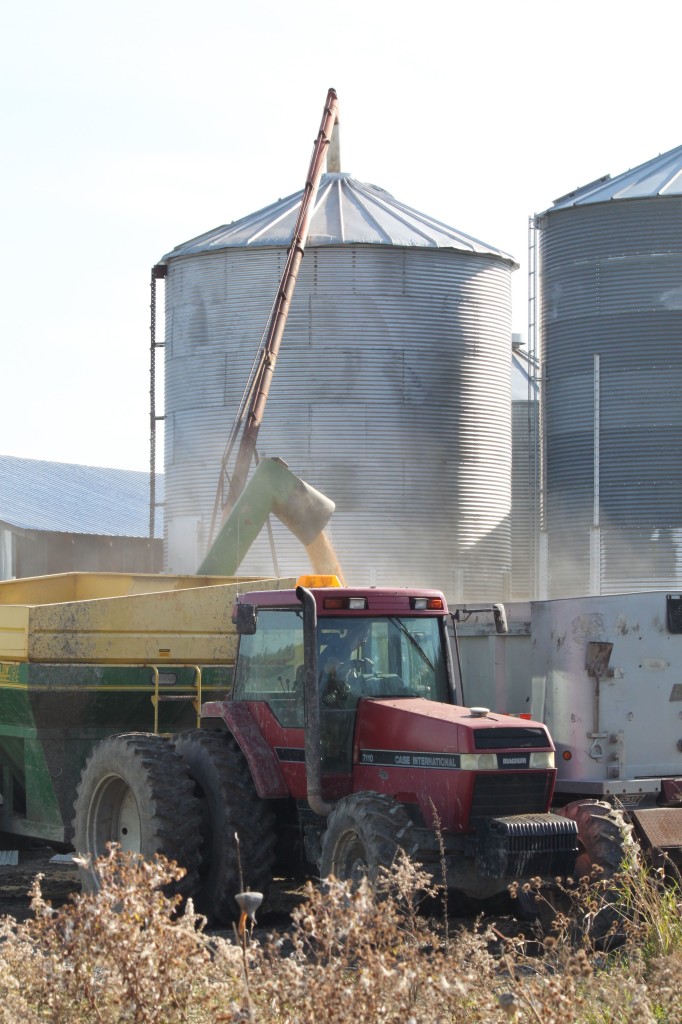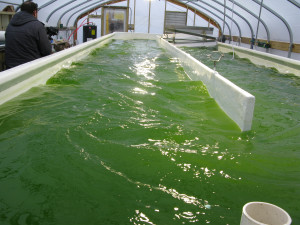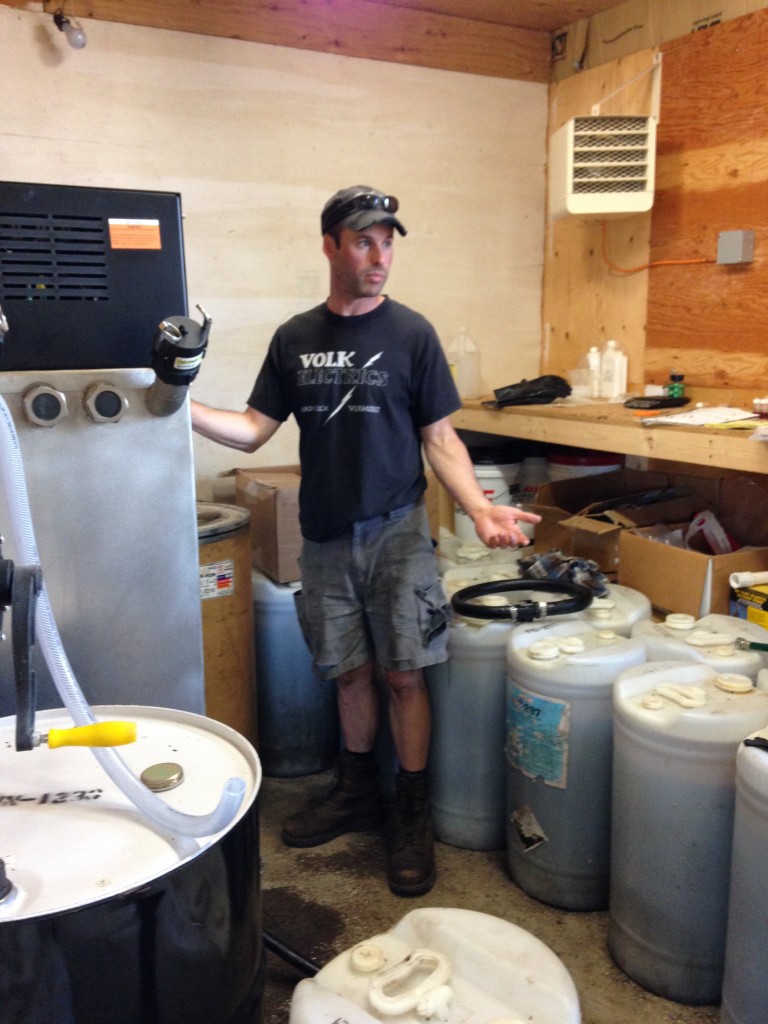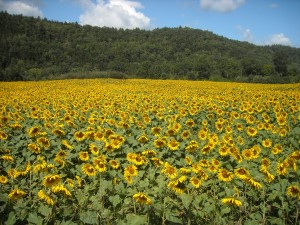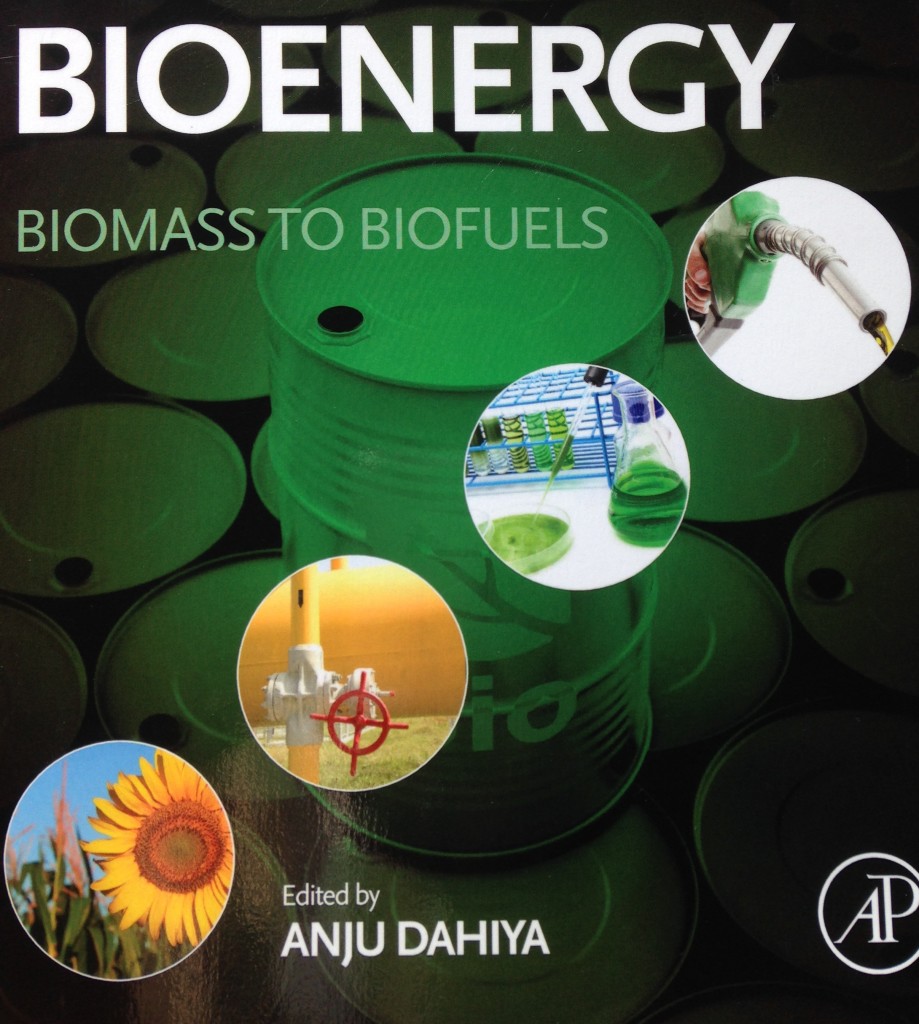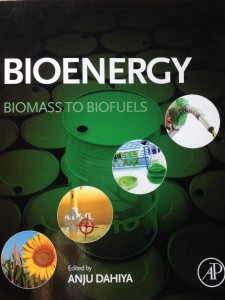06 Apr 2015
Upcoming North American Bioenergy Events
Make sure to check on the Vermont Bioenergy Initiative website for more national bioenergy events as we will be updating this list!
- May
- June
- WasteExpo 2015 June 1-5, 2015 Las Vegas Convention Center
- 5th International Conference on Algal Biomass, Biofuels and Bioproducts. 7 – 10 June 2015. San Diego, USA
- BIO International Convention June 15-18, 2015. Philadelphia, PA
- Bioenergy 2015,June 23-25. Washington, DC
- GAI AgTech Week June 22-24, 2015 San Francisco, CA
- July
- 19th Annual Green Chemistry & Engineering Conference (GC&E). July 14-16, 2015. N. Bethesda, MD
- BIO World Congress on Industrial Biotechnology. July 19 – 22, 2015. Montreal, Canada
- EnergyPath 2015, July 20-24. Scranton, PA
- BioFuelNet Advanced Biofuels Symposium 2015. July 22 – 24, 2015. Montreal, Canada
- August
- September
- Switchgrass III. September 30 to October 2, 2015. Knoxville, TN
- 2nd International Conference on Past and Present Research Systems of Green Chemistry. September 14-16, 2015. Orlando, Florida
- Ag Innovation Showcase September 14-16, 2015 St. Louis, MO
- Algae Biomass Summit September 30-October 2, 2015 Washington, DC
- October
- November
Vermontivate launches fun challenge for building hope and community sustainability
Vermontivate, an on-line/real-world game, brings fun and creativity to the serious and important work of tackling climate change. Players from around the state will spend six weeks from March 23 – May 2, 2015 racking up points on a wide range of challenges ranging from installing energy efficient light bulbs and starting composting piles to establishing community solar CSAs, test driving electric vehicles, and inventing hybrid modes of transportation.
“Climate change is one of the most significant issues we face as a society,” says Vermontivate co-founder Kathryn Blume, “and most people don’t know what they can do to make a difference. Vermontivate is an entertaining, educational, and competitive way of taking meaningful action and building strong communities. Plus, we celebrate the end of the game with a Ben & Jerry’s ice cream party on the State House lawn in May. Climate action doesn’t get much better than that!”
From global warming newbies to well-educated sustainability mavens, people of all ages and experience levels are invited to play. People who don’t live in Vermont can also register to play on behalf of their favorite Vermont team.
The game, now in its fourth year, has kicked it up for 2015. Thanks to increased funding from a wide range of donors, foundations, and state agencies, they’ve built an entirely new website that looks like a quirky, old-fashioned board game. Challenges have been created to align with
Vermont’s highest-level climate goals, and are designed for maximum real world impact. The game will also feature a video contest, team challenges, and the chance to win a wide range of prizes including gift certificates from local restaurants and free pints of ice cream.
“There are a lot of great energy saving games out there,” says Blume, “but Vermontivate is one of the few gamification strategies that tackles full spectrum sustainability. The core challenges are around energy, transportation and food, but we also play with everything from waste reduction and water conservation to Gross National Happiness and the sharing economy.”
“We have something for everyone,” says game co-founder and Vermont Energy Investment Corporation consultant Nick Lange. “As we say to our players: Play Well, Do Good, Be Great!”
For more information and to get on the registration mailing list, visit vermontivate.com
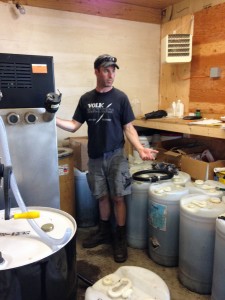
Nick Meyer of North Hardwick Dairy, an Organic Valley milk producer, was able to reduce energy costs and increase self-sufficiency by growing sunflowers for biodiesel and meal while maintaining a wind turbine to help cover electricity needs.
We all know food gives us energy. But we might sometimes lose sight of the amount of energy involved in producing, processing and delivering that food to our plates. Everything requires energy: from tractors plowing and planting to producing fertilizer or compost; from milking cows and keeping that milk cold to storing and transporting vegetables. This energy costs farms real money and it is sometimes a major category of expense. Energy costs are typically one of the highest for farms, rivaling feed costs on dairy farms and labor costs on vegetable farms.
As Vermont experiences growth in food-related businesses and jobs, decisions about energy become more and more important. This has been part of Vermont’s Farm to Plate Strategic Plan and the associated network of people working on implementing that plan. The plan includes goals related to energy, including; reducing farm production expenses, reducing adverse environmental impacts from farm and food system activities, reducing energy use, and increasing renewable energy use in the food system.
One example of how this is actually working is a group called the Farm to Plate Energy Cross Cutting Team: a group of energy specialists from Efficiency Vermont, the Agency of Agriculture, UVM’s Rubenstein School and UVM Extension, The Vermont Bioenergy Initiative, USDA NRCS and private companies. The team meets regularly to learn from each other and take on specific projects such as the recent set of seven “Energy Success Stories” which were released at the 2014 Farm Show, showcasing farms, businesses, vendors, installers, and technical assistance providers who have made a difference with energy efficiency savings and renewable energy production.
Chaired by Efficiency Vermont planning manager, JJ Vandette, the energy team will continue to address the Farm to Plate Efficiency and Renewable Energy Goal to decrease overall food system energy consumption and increase food system renewable energy production and the Farm to Plate Environmental Impacts Goal to decrease adverse environmental impacts from farming and food system activities—while helping to decrease production expenses—also a goal of the Farm to Plate Strategic Plan.
The team is always interested in having new members. If you have an interest in energy, especially energy on farms and in the food system, we’d love to hear from you. JJ Vandette can be reached at jvandette@veic.org or 802.540.7915.
Data sources and analysis at www.vtfarmtoplate.com/getting-to-2020.
2014 was a busy year for the Vermont Bioenergy Initiative as we engaged in national outreach efforts to share our work connecting diversified agriculture and local renewable energy production for on-farm and community use in ways that be applicable to rural areas around the country. These rural areas are often at “the end of the pipeline” and are subject to higher and more volatile costs for energy. The Vermont Bioenergy Initiative “local production for local use” model shows that rural communities can produce some of their own energy, thereby improving their energy security and benefitting from more predictable and affordable energy prices. Any farm in any part of the country can grow and process their own fuel, using the best practices developed by the collaborating farms and UVM Extension researchers working in partnership with the Vermont Bioenergy Initiative. Funding for our program work to support research, technical assistance, and infrastructure development in emerging areas of bioenergy was secured by US Senator Patrick Leahy and the US Department of Energy.
Recent news we distributed to local, regional, and national audiences includes:
Local production for local use is biofuel model that works in Vermont.
Vermont sunflowers to help provide biodiesel power.
We have worked with several regional and national publications to secure editorial specifically featuring oil crops for on-farm biodiesel and feed, and grass energy for heating.
Check out the recent interview with our UVM Extension consultant and agricultural engineer, Chris Callahan in Biofuels Journal.
Read about alternative energy innovations on the farm featuring farms a part of the Farm Fresh Fuel Project in Farming Magazine.
The Grass Energy Report we released summer 2014 was featured extensively in both Renewable Energy World and On Pasture Magazine.
Visit the Green Energy Times website for our ongoing column, Emerging Frontiers in Bioenergy and follow the Vermont Bionenergy on Twitter for current news, trends, and tweets on renewable energy in Vermont and beyond.

Aegis Renewable Energy a Vermont based renewable energy company designed and installed the first commercial wind turbine in New York City at “Sunset Park” SIMS Municipal Recycling plant in Brooklyn. Aegis erected the 100kW wind turbine in December, 2014 and partnered with Vermont based wind turbine manufacturer, Northern Power Systems located in Barre, Vermont.
The project was recently featured in the New York Times: “In less than a month of operation, the first large-scale wind turbine to be installed in New York City, standing more than 160 feet tall, has produced enough energy to power two homes for over a year, or one 20-watt light bulb for over a century.”
The energy produced from the wind turbine “is expected to provide 4 percent of the energy used by the plant,” the Times article continues. Aegis’ CEO, Nils Behn, was also quoted in the article: “The Sunset Park waterfront’s wide-open nature makes it a prime spot for harvesting wind.”
Aegis won the project through a competitive bid process in 2011 and immediately began the electrical and foundation design process as well as completing various studies including sound and wildlife impact analyses, all of which were critical components in securing grants and permitting for the project.
Aegis has partnered with Northern Power Systems on 15 projects to date, “Northern’s undisputed position as the world leader in the 100kW wind turbine market, and their uncompromising commitment to quality, has been a key component to our success and theirs” said Nils Behn, CEO of Aegis.
During the ribbon cutting ceremony in New York, Northern Power CEO Troy Patton said “Northern Power leverages knowledge from over 400 wind turbine projects around the world to provide installers with training on the best practices for smooth and efficient installations”.
Aegis partners with other Vermont companies, including Green Mountain Credit Union which partnered with Aegis to create a community solar loan program, and the Vermont Sustainable Jobs Fund (VSJF)- Flexible Capital Fund which provided growth stage royalty financing to help Aegis expand its business operation and create more jobs in Vermont’s renewable energy sector.
About Aegis Renewable Energy
Aegis Renewable Energy offers full-service community-scale renewable energy solutions for farms, businesses, non-profits, and municipalities. Wind, Solar and Anaerobic digesters (cow manure and food waste) are included in Aegis’ services designed to help clients save money and the planet. Aegis Renewable Energy is located in Waitsfield, Vermont and provides cost evaluation, permitting, and financing support, installation, and maintenance services throughout Vermont and New England. To learn more about Aegis Renewable Energy, please visit www.aegis-re.com.
About Northern Power Systems
Northern Power Systems designs, manufactures, and sells wind turbines and power technology products, and provides engineering development services and technology licenses for energy applications, into the global marketplace from its US headquarters and European offices. Northern Power Systems has almost 40 years’ experience in technologies and products generating renewable energy. Northern Power Systems currently manufactures the NPS™ 60 and NPS™ 100 turbines. With over 6 million run time hours across its global fleet, Northern Power wind turbines provide customers with clean, cost effective, reliable renewable energy. To learn more about Northern Power Systems, please visit www.northernpower.com.
If you would like more information about this topic, please contact: Sonia Behn 802-496- 5155 or email at sbehn@aegis-re.com.
16 Feb 2015
Upcoming Farm Energy IQ Training

It’s not too late to register for the upcoming Farm Energy IQ Training for New England Agricultural Service Providers. This training will take place starting Monday, February 23rd at 8:00 a.m. and will end Wednesday February 25 in Fairlee, Vermont. Organized by individuals from the University of Vermont Extension Service, Penn State, and Rutgers University, this three day training is a great opportunity for those interested in on farm energy to learn and apply their skills as well as network with other attendees. The Farm IQ Energy Training is funded generously by Northeast Sustainable Agriculture Research and Education (SARE) Program as part of a regional professional development program to bring the latest developments in the field to individuals who can best apply them.
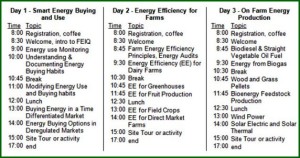
This conference will provide a range of opportunities to learn or improve energy purchasing, calculating, conservation, production, and analysis.Attendees will even have the opportunity to apply skills via hands-on activities and by visiting local operations. Over the three days these lessons will be compared for application on farms in different settings. In addition, attendees will receive a comprehensive binder with all the material covered in the workshops as well as supplemental materials to refresh and share material as well as continue learning.
This conference is a great opportunity to solidify one’s knowledge by learning from on hand specialist and being immersed with in the material. If you happen to miss this particular training, the same workshop will be offered in Pennsylvania, March 10th to the 12th and again in New Jersey from April 8th to the 10th.
Read more about renewable energy events around the country on the Vermont Bioenergy Field Notes blog
- February
- Biomass Boot Camp, February 23, Catonsville, MD
- Farm Energy IQ – Training for NE Ag Service Providers in VT February 23- 25, Fairlee, VT
- ACI’s 4th Carbon Dioxide Utilization Conference 2015 February 25-26 San Antonio, TX
- 2015 Executive Leadership Conference. 25 February – 1 March 2015. Phoenix, Arizona
- March
- World Agri-Tech Investment Summit. March 3-4, 2015 San Francisco, CA
- Waste to Biogas and Clean Fuels Finance and Investment Summit. March 3-4 San Jose, CA
- Farm Energy IQ – Training for NE Ag Service Providers March 10-12, 2015 State College, PA
- Advanced Bioeconomy Leadership Conference March 11-15, 2015 Washington, DC
- Next-Generation Defense Energy Symposium. 17 – 18 March, 2015. Washington, United States
- WEBINAR: Using B100 in Our Class-8 Trucking Operations (60 trucks) in Tennessee March 19, 2015 10:00 AM ET
- ACI’s Annual Lignofuels Americas Summit March 25-26, 2015 Milwaukee, WI
- Forest Products and Timberland Investment Conference. March 31-April 1, 2015. New York, NY
- April
- Applying Renewable Energy – Online Training April 01, 2015 at 09:00 AM to June 30, 2015 at 06:00 PM
- Farm Energy IQ – Training for NE Ag Service Providers in NJ, April 8- 10, Bordentown, NJ
- 5th Defense Renewable Energy Summit. 7-8 April 2015. Arlington, VA
- Good Jobs, Green Jobs 2015 April 13 Washington, D.C
- 2015 Northeast Biomass Heating Expo. April 16-18, 2015. Portland, ME
- Introduction to Renewable Energy Technologies Start date: 20 to 22, 2015
- International Biomass Conference and Expo. 20 -22 April 2015. Minneapolis, MN
- 37th Symposium on Biotechnology for Fuels and Chemicals. April 27 – 30, 2015 San Diego, CA
02 Feb 2015
Advanced Bioeconomy Leadership Conference 2015
The Advanced Bioeconomy Leadership Conference, to be held on March 11th through the 13th in Washington D.C. serves as a great opportunity to for companies and individuals in the field of biofuels and bioenergy to educate themselves on the most recent advances in the field as well as network with some of its top experts and leaders. This event will open up with a welcome introduction from Jim Lane, Director and Editor of Biofuels Digest and the event’s momentum only promises to build from there. Among other big industry names in appearance, leaders from organizations such as the National Biodesiel Board, American Council on Renewable Energy, U.S. Department of Energy, U.S. Department of Agriculture, the Algae Biomass Organization, and even the U.S. Navy will be speaking and presenting on a variety of policies, advances, and outlooks pertaining to their respective niches.
This conference offers the rare opportunity to receive first hand updates and future outlooks of U.S. bioenergy policies from those who can report best; both Jonathan Male, Director of the U.S. DOE Bioenergy Technologies Office and Harry Baumes, Director of USDA Energy Policy will be speaking on the subjects during the Thursday session of the conference. In addition, conference goers can expect the most up to date reports on current best practices and trends in the field during the ABLC Finance Summit from big investors such as Citiroup and the sessions such as “Due Diligence” in which experts David Dodds of Dodds & Associates and Ron Cascone of NEXANT look at new and emerging companies and technologies.
In addition to conventional biofuel operations and programs, the conference will feature some more advanced military and aviation biofuel related sessions with an appearance by the U.S. Navy’s operational energy director, Chris Tindal. These sessions are organized in partnership with the Commercial Aviation Alternative Fuels Initiative (CAAFI). Altogether, this conference is a great opportunity that can’t be missed for those working with bioenergy of all feedstocks and uses. A complete list of conference sponsors, speakers and events as well as information for registration and lodging can be found on the ABLC website.
Bioenergy: Biomass to Biofuels; is an innovative new textbook that provides insight into the potential and current advances and benefits of biofuel. Contributions include an extensive list of well-respected university extension programs, such as The University of Vermont Research Extension, as well as numerous national organizations including the US Department of Energy’s National Renewable Energy Laboratories. The text is edited by Anju Dahiya, cofounder of General Systems Research, LLC and lead biofuels instructor at the University of Vermont’s Rubenstein School of Environment and Natural Resources, both of which stand as leaders in cutting-edge topics such as microbial fuels and biogas. The chapters of the book are divided into solid, liquid and gaseous biofuels, and further explore cost-effective production as well as discussions covering economics, environment and policy.
Organized into seven accessible sections, Bioenergy: Biomass to Biofuels begins with an in-depth overview of the transformation of biomass into biofuels. Once the basics are covered, readers move on to the technical applications of solid feedstocks, such as wood and grass, and their transformation into biofuels. The following section discusses biomass to liquid biofuels—text focuses on oilseeds, cellulose ethanol, and algae as feedstocks. Anaerobic digestion is explored in a section outlining gaseous fuels and bioelectricity and focuses primarily on livestock manure feedstocks. Throughout the chapters, the tradeoffs and benefits of these different feedstocks are outlined through deeper analysis.
Multiple chapters focus in detail on conversion pathways for cost effective biofuel production. The myriad of topics include basic biodiesel production efficiency, converting petroleum-based infrastructure into biorefineries, reducing enzyme cost through varying combinations, and sustainable aviation biofuels. The text concludes with a robust section that connects biofuels to a big picture perspective—economics, sustainability, environmental implications, and policy are examined closely in relation to renewable resources, future uncertainties, and entrepreneurship.
Bioenergy: Biomass to Biofuels is structured to meet the needs of professionals finding their way in the field, students in need of an introduction, and instructors establishing a course on biofuels. Case studies on provided topics are found at the end of every section and are based on documented implementation projects. Bioenergy: Biomass to Biofuels is available for purchase on the Elsevier publisher website. Editor Anju Dahiya, owner of General Systems Research in Burlington, Vermont and is a Vermont Bioenergy Initiative grant recipient to advance research and applications of converting algae into biofuel.
Vermont is an indisputable leader in sustainable job growth and renewable energy, punching well above its weight in the fight against global climate change. It is because of opportunities like the upcoming summit, Creating Prosperity & Opportunity Confronting Climate Change, that local business, government, non-profit, and higher education leaders will come together to focus on advancement of sustainable job growth in fields that have a positive impact on the environment and local economy. Organizations including the Vermont Energy Investment Corporation, Renewable Energy Vermont, Green Mountain Power, University of Vermont, Energy Action Network, several government agencies, and multiple renewable energy businesses will converge at Vermont Technical College on Wednesday, February 18th for Vermont’s climate change summit sponsored by the Vermont Council on Rural Development. The day will commence with a keynote address from Vermont Governor Peter Shumlin who will speak about “Vermont as Climate Economy Leader.” The recently reelected Governor’s inaugural address, focused heavily on energy and the environment and the summit provides an opportunity for Vermonters concerned with regional climate change to learn more about his upcoming plan of action.
A “Climate Science Fishbowl” will follow, focusing on the effects regional and global climate change will have on Vermont’s future. Moderated by Mark Johnson, host of WDEV’s The Mark Johnson Show, the panel will feature Jon Erickson of Rubenstein School, UVM, Alan Betts of Atmospheric Research, and Gillian Galford of VT Climate Assessment, UVM. Two sets of breakout sessions round out the rest of the day; the first focusing on “climate economic policy” followed by “ideas for action” in the afternoon. Those interested in bioenergy might elect to attend breakout sessions such as “Advancing Community-Based Climate Action” moderated by Johanna Miller of VECAN and the VT Natural Resources Council or “Developing Ubiquitous Distributed Energy” moderated by Chuck Ross, Secretary of VT Agency of Agriculture, Food & Markets. Additionally, “Spurring Research and Development for New Technologies in Vermont” moderated by Ted Brady, USDA Rural Development seems to complement the Vermont Bioenergy Initiative’s work building the new frontiers in bioenergy for the State of Vermont. To register and for a complete schedule visit: http://vtrural.org/programs/climate-economy/summit.




